The wielders of power did not speak for it, nor did they naturally serve it. Their interest was to use and develop power, no less natural and necessary than liberty but more dangerous.
BERNARD BAILYNEmerging first in the form of denunciations of standing armies in the reign of William III, left an indelible imprint on the “country” mind everywhere in the English-speaking world.
More Bernard Bailyn Quotes
-






-





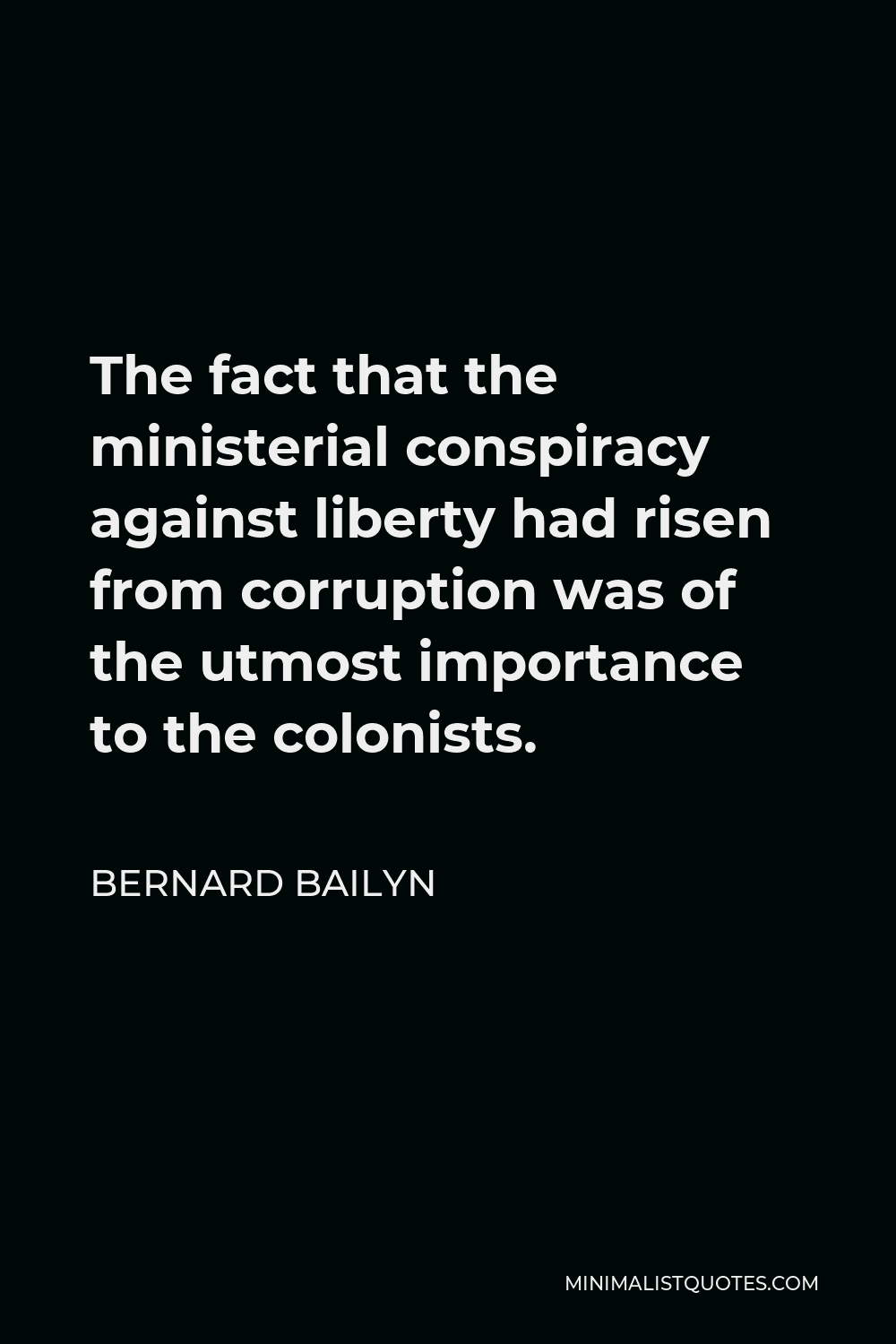
The fact that the ministerial conspiracy against liberty had risen from corruption was of the utmost importance to the colonists.
BERNARD BAILYN -







Defiance to constituted authority leaped like a spark from one flammable area to another, growing in heat as it went.
BERNARD BAILYN -





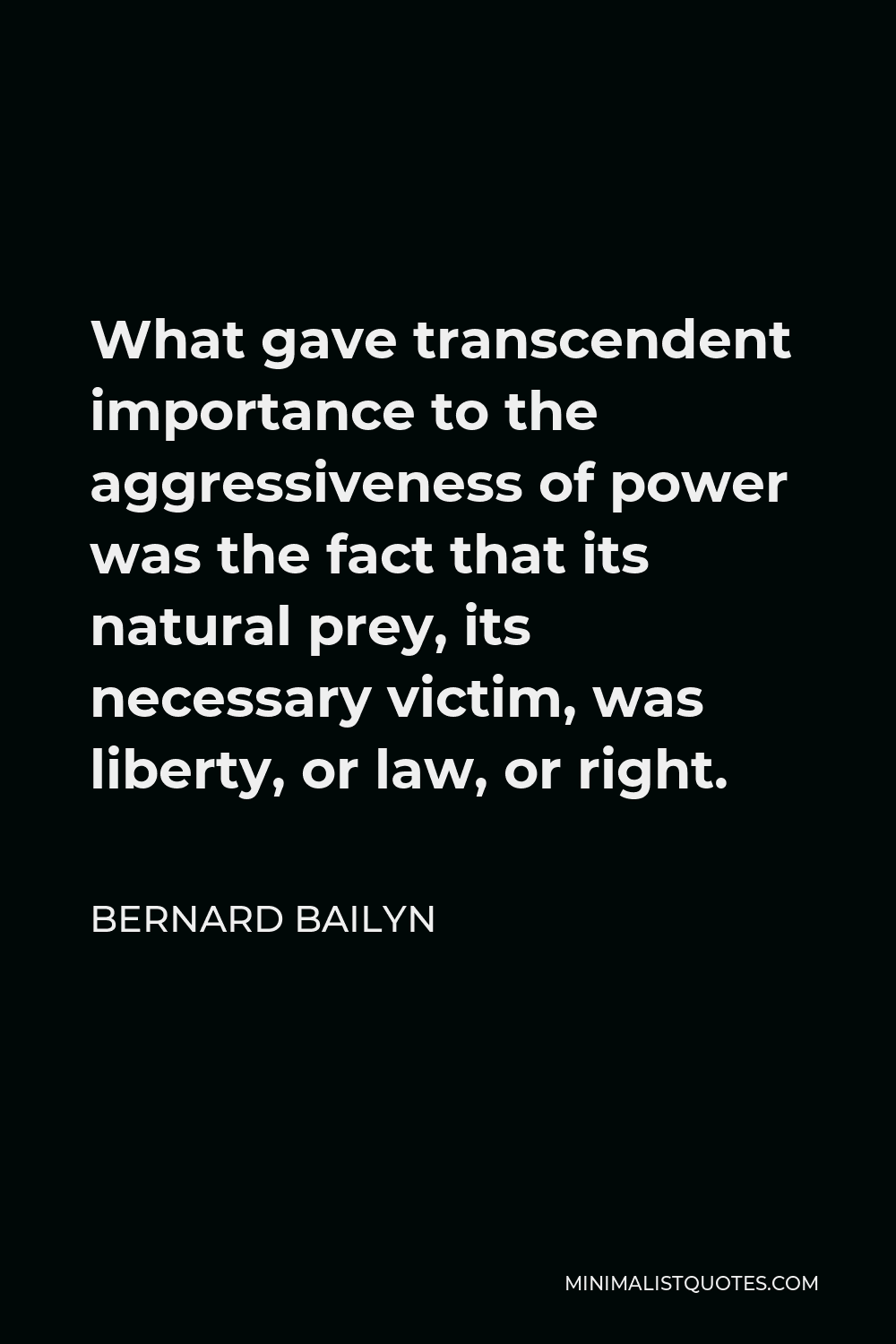
What gave transcendent importance to the aggressiveness of power was the fact that its natural prey, its necessary victim, was liberty, or law, or right.
BERNARD BAILYN -





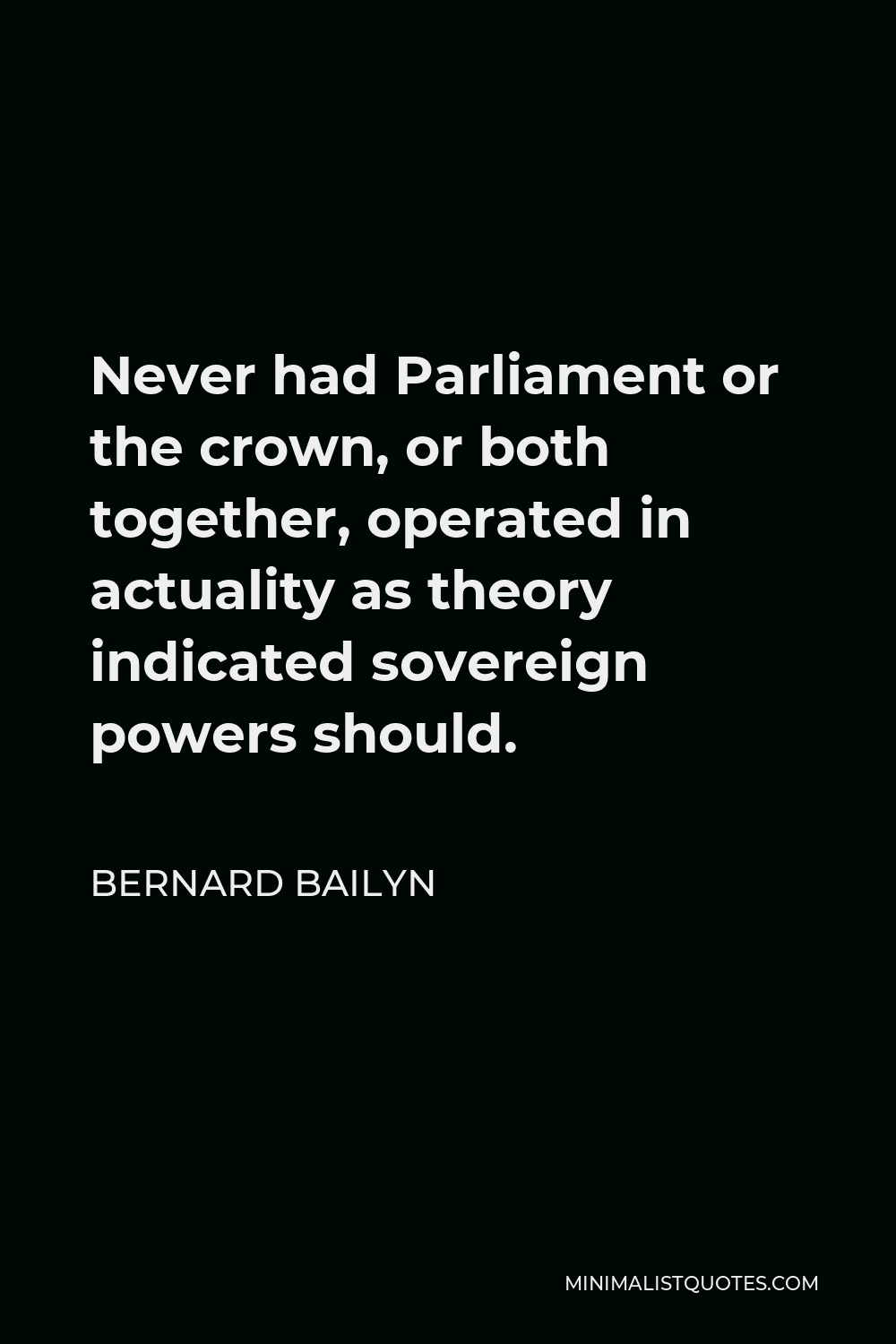
Never had Parliament or the crown, or both together, operated in actuality as theory indicated sovereign powers should.
BERNARD BAILYN -






Incorporating in their colorful, slashing, superbly readable pages, the major themes of the “left” opposition under Walpole, these libertarian tracts.
BERNARD BAILYN -






The full bibliography of pamphlets relating to the Anglo-American struggle published in the colonies through the year 1776 contains not a dozen or so items but over four hundred.
BERNARD BAILYN -






Whatever deficiencies the leaders of the American Revolution may have had, reticence, fortunately, was not one of them.
BERNARD BAILYN -





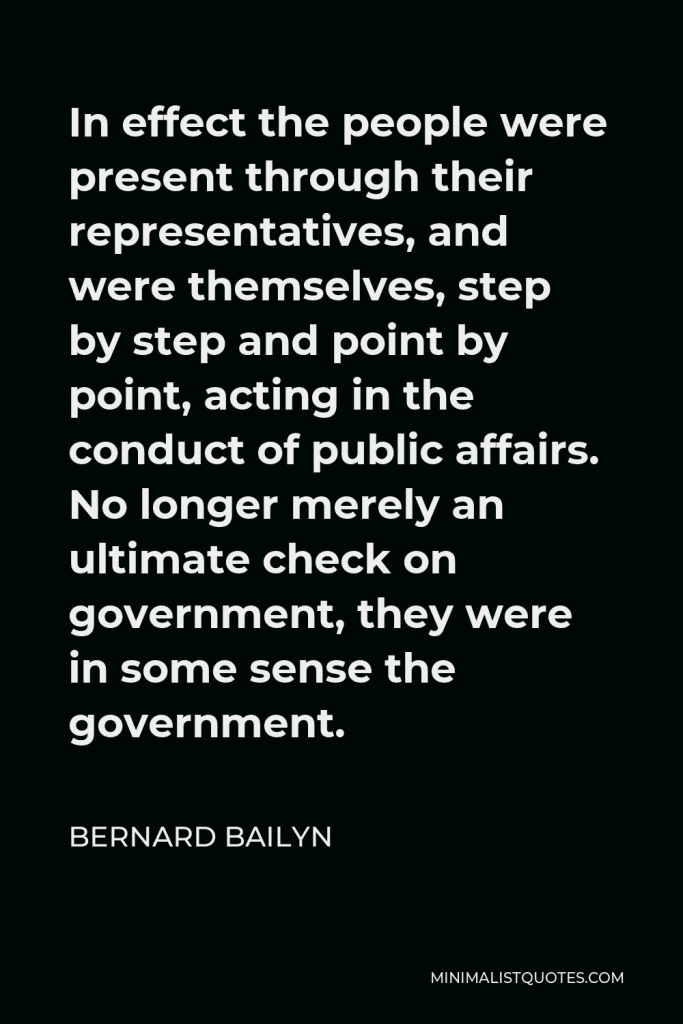

In effect the people were present through their representatives, and were themselves, step by step and point by point, acting in the conduct of public affairs. No longer merely an ultimate check on government, they were in some sense the government.
BERNARD BAILYN -





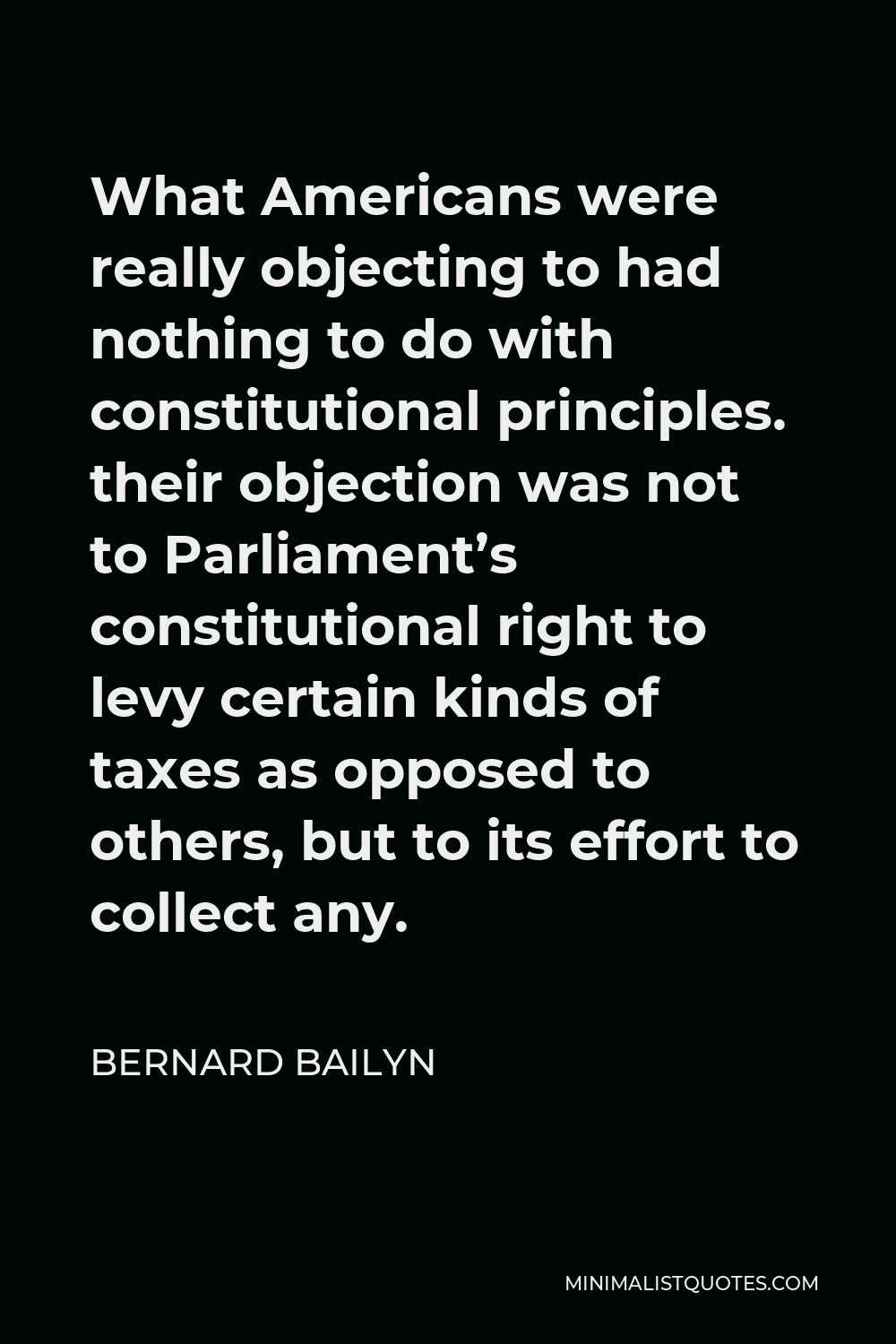
What Americans were really objecting to had nothing to do with constitutional principles. their objection was not to Parliament’s constitutional right to levy certain kinds of taxes as opposed to others, but to its effort to collect any.
BERNARD BAILYN -






At first the relevance of chattel slavery to libertarian ideals was noted only in individual passages of isolated pamphlets.
BERNARD BAILYN -





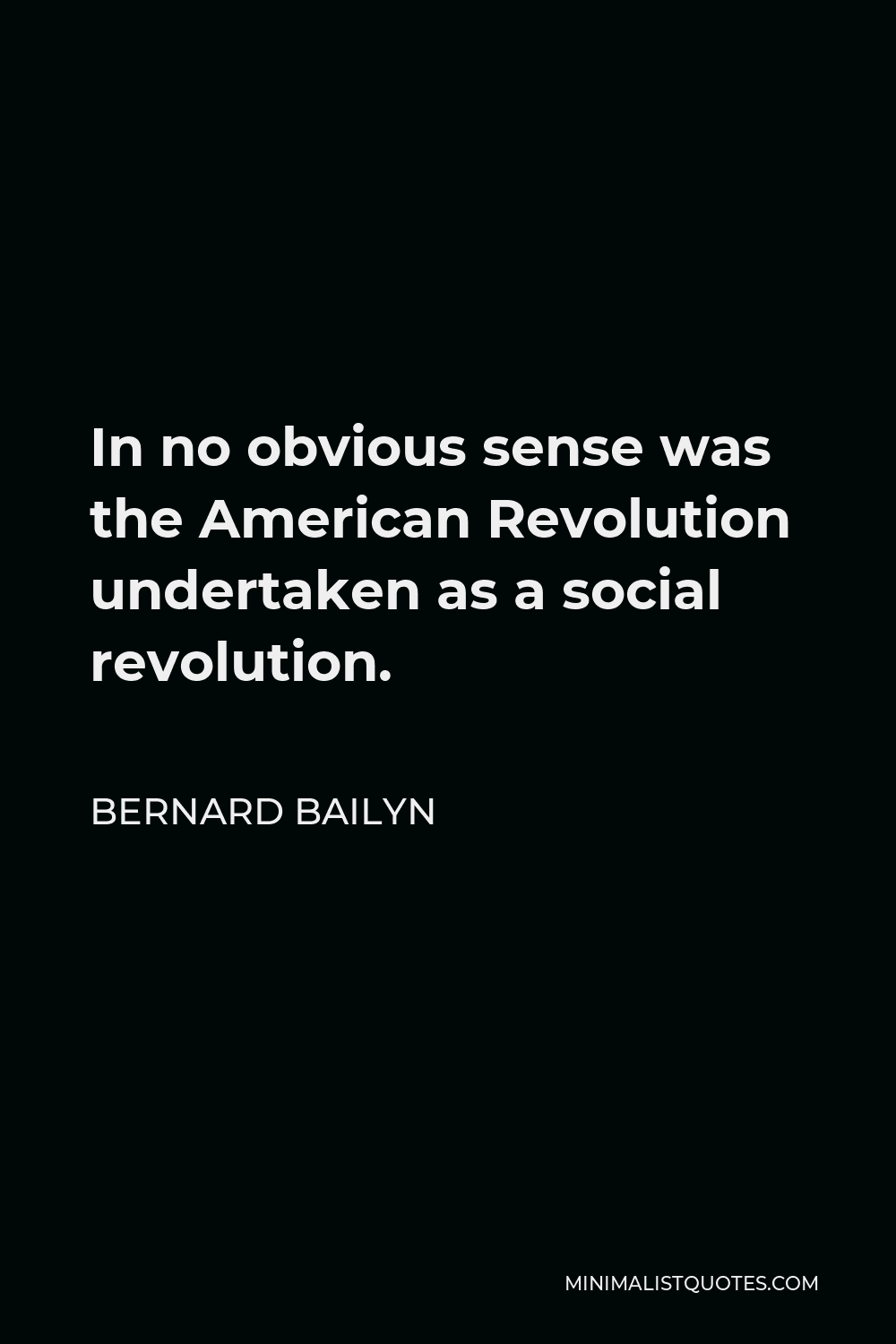
In no obvious sense was the American Revolution undertaken as a social revolution.
BERNARD BAILYN -






The categories within which the colonists thought about the social foundations of politics were inheritances from classical antiquity, reshaped by seventeenth century English thought.
BERNARD BAILYN -





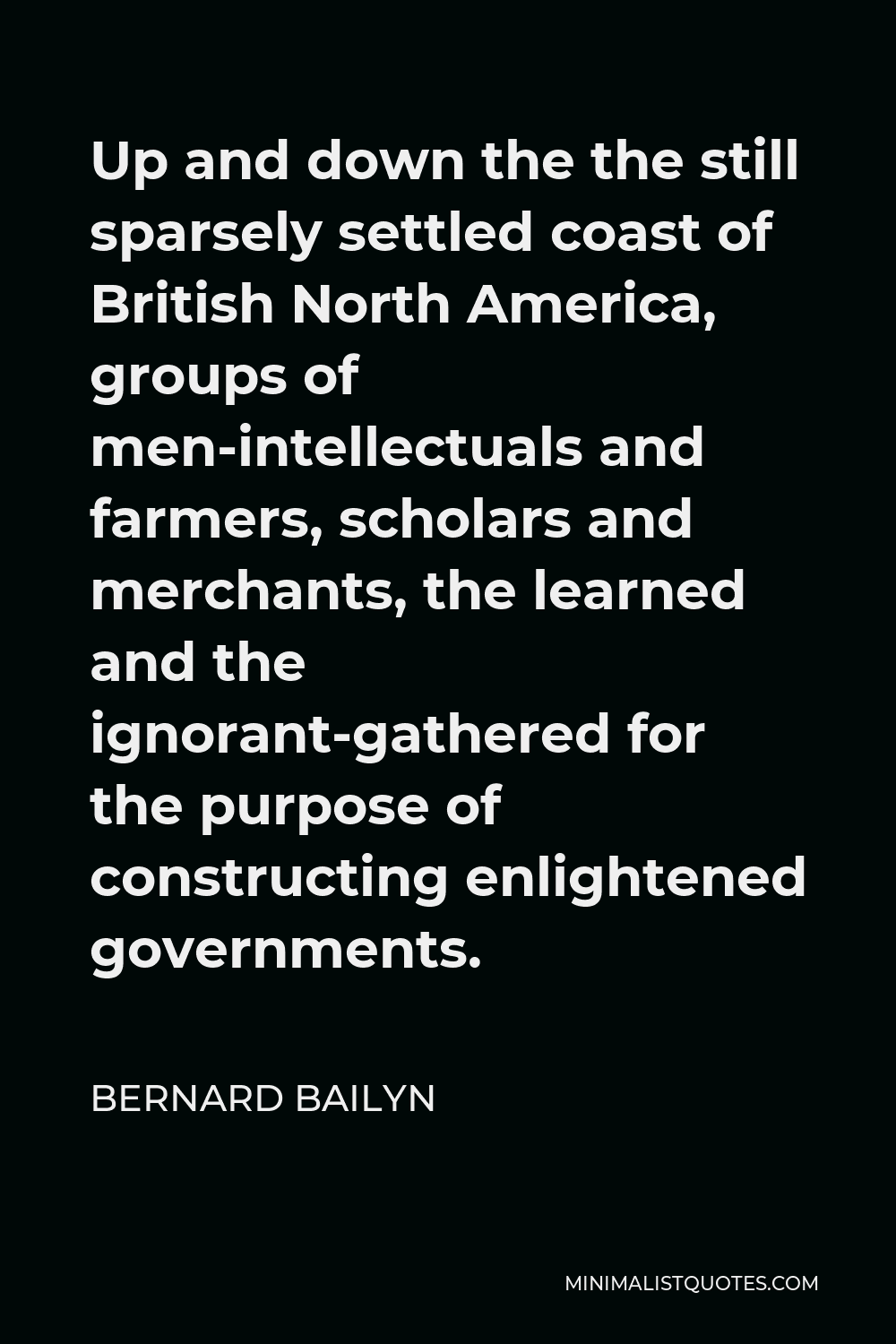
Up and down the the still sparsely settled coast of British North America, groups of men-intellectuals and farmers, scholars and merchants, the learned and the ignorant-gathered for the purpose of constructing enlightened governments.
BERNARD BAILYN -






Instantly available without continuous presence is probably the best role a mother can play.
BERNARD BAILYN -





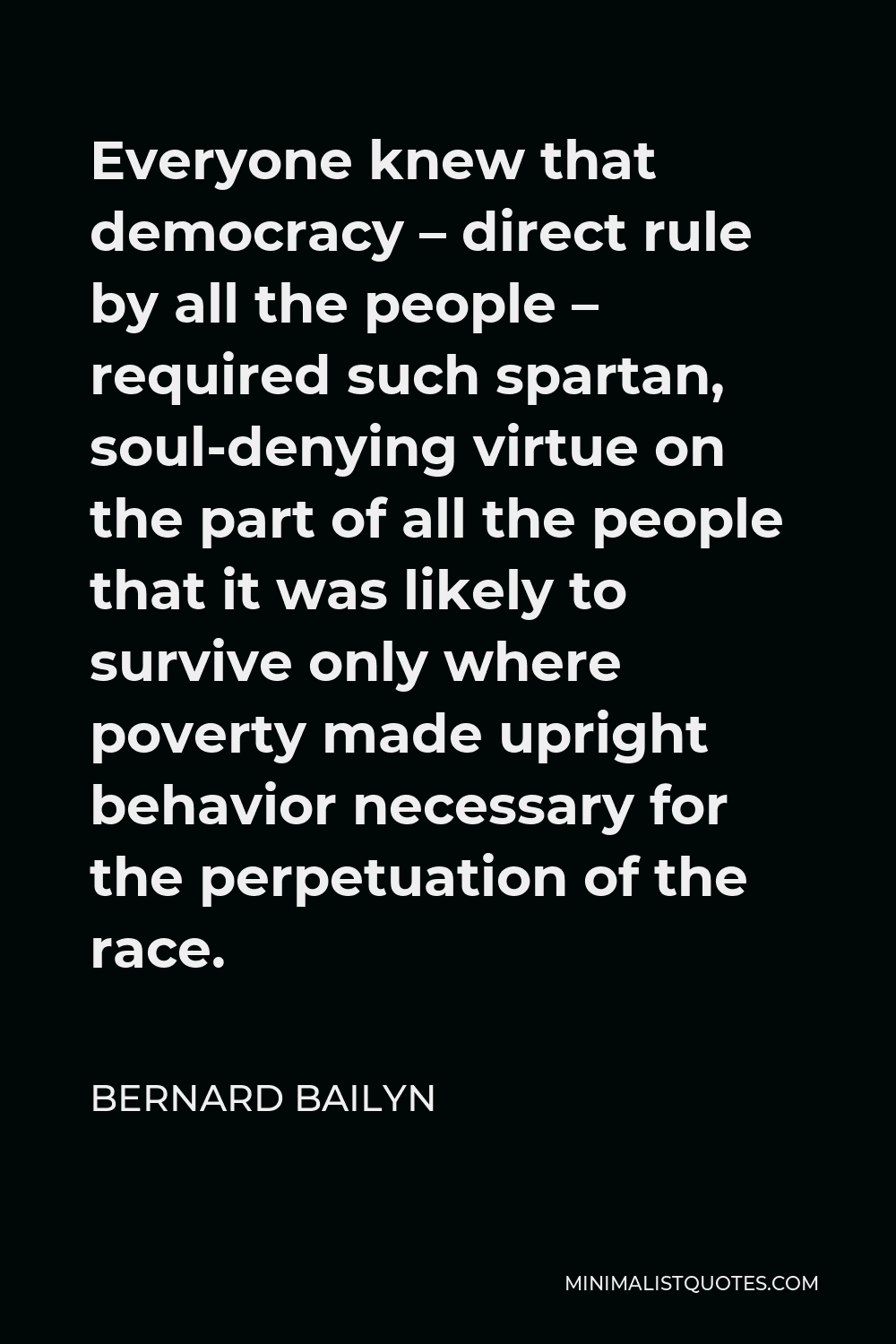
Everyone knew that democracy – direct rule by all the people – required such spartan, soul-denying virtue on the part of all the people that it was likely to survive only where poverty made upright behavior necessary for the perpetuation of the race.
BERNARD BAILYN







